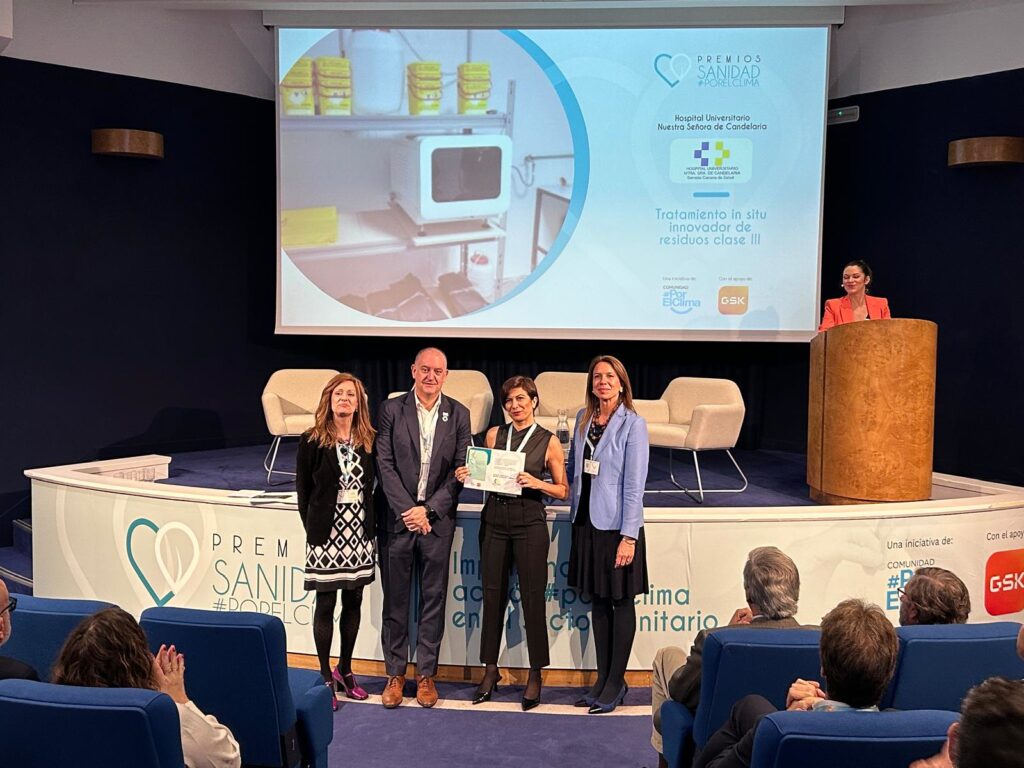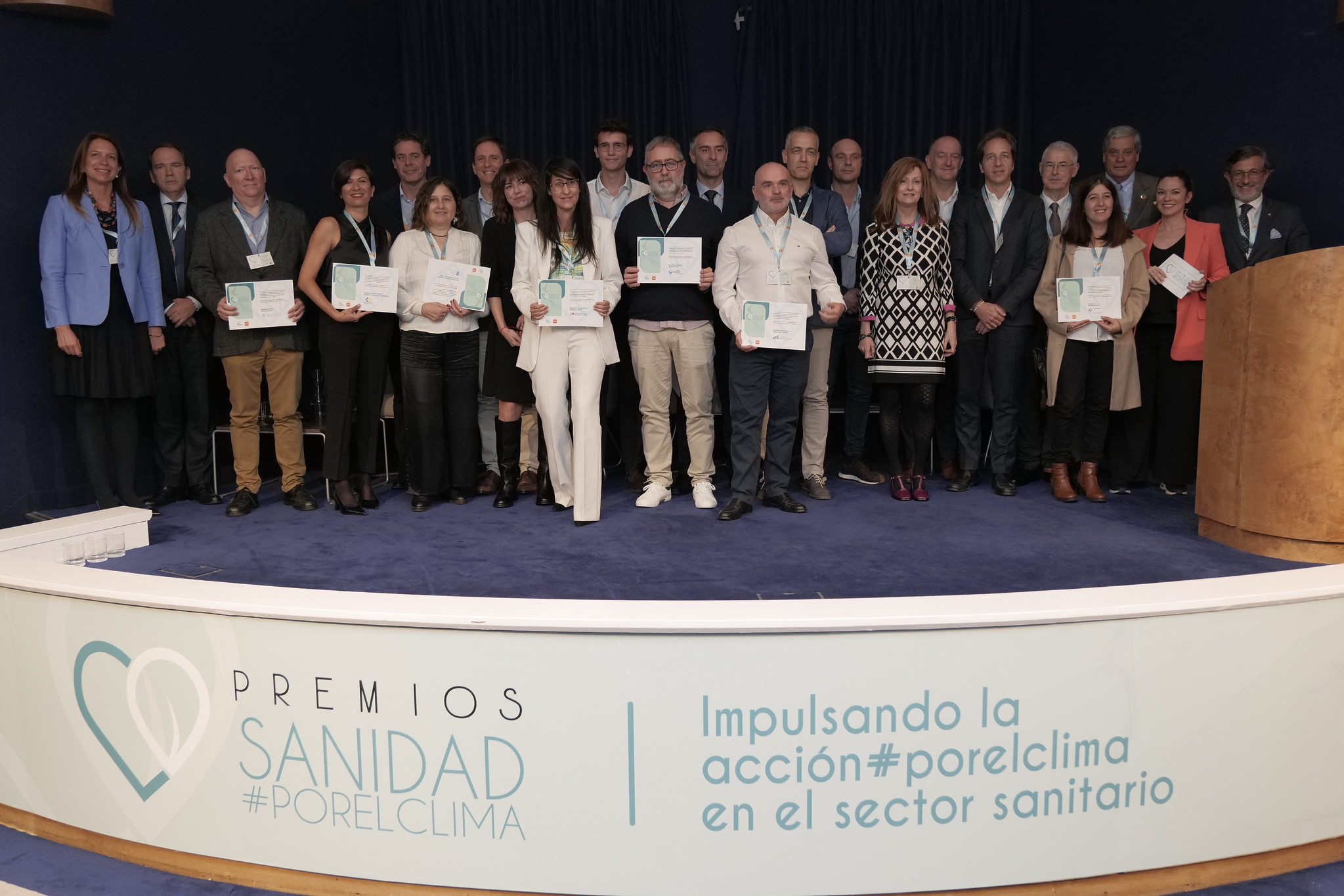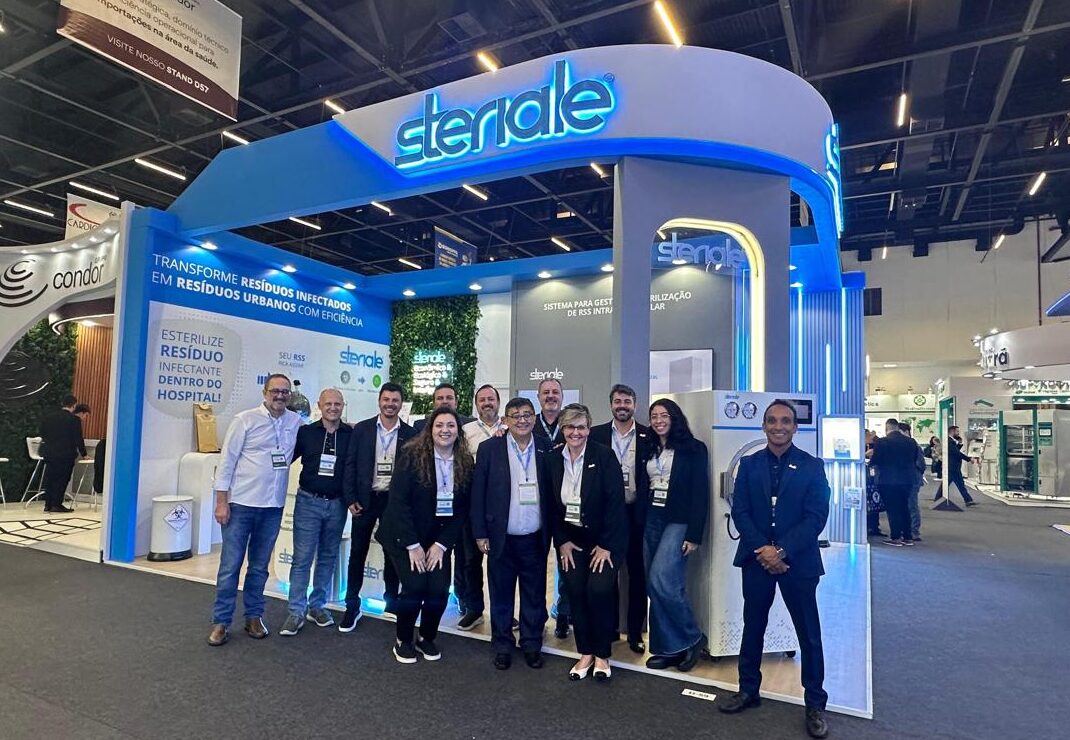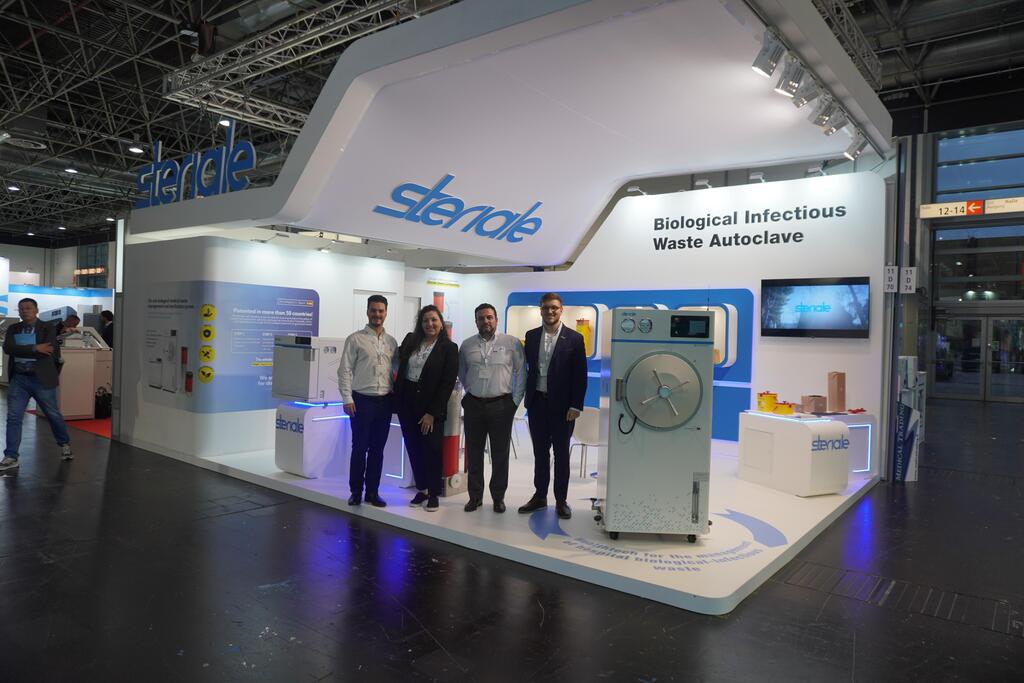On November 6, 2024, the closing ceremony of the III edition of the #PorElClima Healthcare Awards took place in Madrid. This initiative, in collaboration with GSK Spain, aims to highlight and make visible the commitment of Spanish hospitals in reducing their carbon footprint and in the transition towards a more sustainable healthcare model.
The awards are aligned with the objectives of the Glasgow Health Program (COP26) and the Alliance for Transformative Action on Climate and Health (ATACH) at COP27, highlighting the efforts of healthcare facilities to make progress towards the goal of limiting global temperature increase to 1.5 °C, as set out in the Paris Agreement.
Hospitals Honored for their Sustainable Initiatives
The following are the initiatives of the hospitals recognized in this edition:
- Hospital Álvaro Cunqueiro (Vigo): Implemented a solar energy system with more than 5,400 photovoltaic panels that generate up to 25% of the energy consumed by the hospital. This represents a reduction of 1,500 tons of CO₂ per year and significant savings in the long term.
- Hospital Clínico Universitario Virgen de la Arrixaca: Optimized its laundry using circular economy criteria, achieving a 42% reduction in CO₂ emissions and a more efficient use of water and chemicals. In addition, it eliminated 18 tons of single-use plastic per year.
- Guadalajara Hospital: Replaced its fleet of diesel vehicles with electric units, achieving a 100% reduction in CO₂ emissions in internal transportation. The initiative is part of a larger energy efficiency and decarbonization plan.
- Hospital San Juan de Dios del Aljarafe: Generates solar energy through 514 photovoltaic panels and uses the savings obtained to help families living in energy poverty. This model reduces environmental impact and provides a tangible social benefit.
- Santa Marina Hospital: Improved the efficiency of its biomass boiler, achieving 30% of its energy from renewable sources. With this measure, the hospital reduced its emissions by 32% in just one year.
- Santa Tecla Llevant Hospital: Implemented a comprehensive decarbonization plan that includes renewable energy, air conditioning optimization and food waste reduction. This effort has reduced its CO₂ emissions and eliminated the use of disposable plastic.
- Hospital Universitario Clínico San Cecilio: It has reduced its carbon footprint by 61.69% since 2017 through the installation of solar panels, recycling systems and optimization in waste management. Its commitment to sustainability is a replicable model for other healthcare centers.
- Hospital Universitario Nuestra Señora de Candelaria: It has been recognized for its innovative hospital waste management system “Steriale”. This system allows the on-site treatment of hazardous bio-sanitary waste through a sterilization process, converting it into conventional urban waste. With this technology, the hospital significantly reduces its carbon footprint by eliminating the need to transport waste to external plants, which minimizes CO₂ emissions and optimizes hospital management. In addition, Steriale improves safety in waste handling and reduces operating costs, offering an efficient and replicable solution for other hospitals seeking a sustainable model of environmental management in the healthcare sector.
- Hospital Universitario Ramón y Cajal: Has adopted measures to optimize electricity consumption, installing LED lighting systems and improving the efficiency of its equipment. This has generated a notable decrease in its annual energy consumption.
- Hospital General de Castellón: Has incorporated water efficiency technologies in its facilities, reducing potable water waste by 40%. It has also promoted sustainable waste management through specialized recycling programs.
Steriale: Innovation in Hospital Waste Management

The Steriale waste treatment system, implementedat the Hospital Universitario Nuestra Señora de Candelaria, represents a significant advance in sustainable hospital management. Unlike traditional methods, this system allows the safe neutralization of biosanitary waste without the need for transport to external treatment plants, resulting in a direct reduction of the hospital’s carbon footprint. In addition, Steriale minimizes the biohazards associated with handling hazardous waste and offers an effective, replicable solution adapted to the needs of the modern healthcare sector.
With this distinction, Steriale reinforces its commitment to innovation in waste management, actively contributing to the decarbonization of the healthcare sector and promoting a more sustainable, safe and efficient hospital model.



